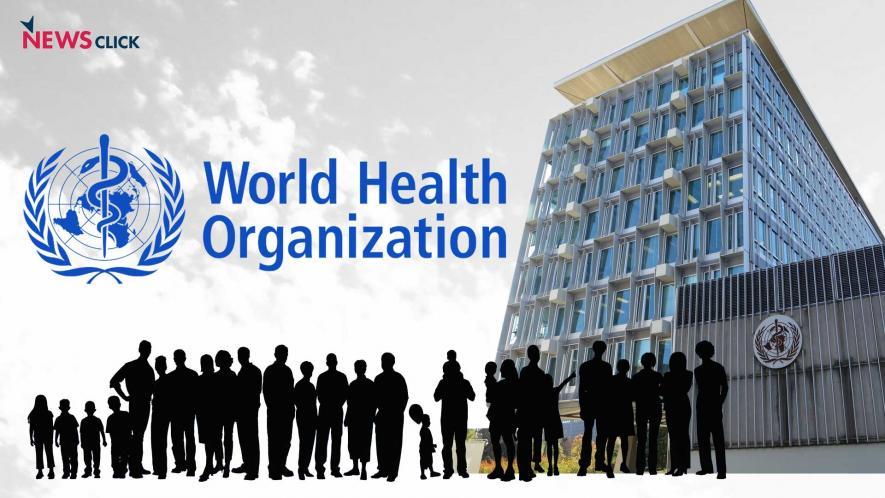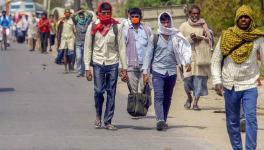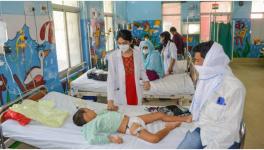India Accounts for 66% of Malaria Cases in WHO-defined South-East Asia, Global Surge Noticed: Report

The fight against malaria is becoming a challenge globally as cases of the disease have surged. This worrying situation has been revealed by the Annual Malaria Report produced by the World Health Organisation (WHO). The annual report for the year 2022 was released on November 30.
In the year 2022, according to the report, the estimated global malaria cases were 249 million, which is 16 million more in comparison to the pre-pandemic period of 2019. The disruptions during COVID-19 in health care worldwide, along with other factors like drug and insecticide resistance, resource constraints as well as climate change and delays in the implementation of malaria programmes, specifically in the countries having a high burden, have impacted malaria cases worldwide.
The report hints about the nexus between climate change and the malaria surge. Changes in temperature, humidity or rainfall can impact the Anopheles mosquito, the known carrier of malaria. In fact, these factors can change the behaviour and survival of Anopheles. Extreme weather events linked to climate change, like heatwaves, flooding etc., can impact both the transmission of malaria and the disease burden. Citing an example, the report talked about the catastrophic floods in Pakistan in 2022 and said that it increased malaria five-fold in the country.
WHO Director-general Tedros Adhanom Ghebreyesus, in a comment about climate change and malaria cases, was quoted to have said, “The changing climate poses a substantial risk to progress against malaria, particularly in vulnerable regions. Sustainable and resilient malaria responses are needed now more than ever, coupled with urgent actions to slow the pace of global warming and reduce its effects.”
The climate-induced migration of the human population to newer places may have exposed those without immunity to regions where malaria is endemic. Moreover, inaccessibility to essential malaria services and irregular supply of medicines, insecticide-treated nets and vaccines contribute to the global surge.
The report says that the COVID-19 pandemic significantly disrupted malaria services, which led to a surge in cases and mortality. Five countries were found to bore the burden of five million cases, with Pakistan at the top, recording 2.6 million cases in 2022, where the cases were 5,00,000 in 2021. Apart from Pakistan, Uganda, Nigeria, Papua New Guinea, and Ethiopia also registered significant increases in malaria cases.
11 countries which have the highest burden of malaria globally are supported through WHO’s High Burden to High Impact (HBHI) approach. These countries recorded 167 million malaria cases in 2022, with 4,26,000 deaths. The report finds that with the current trend the progress towards meeting the aim of malaria containment strategy is out of track by a wide margin.
India Recorded Highest Cases in the WHO Defined South-East Asia
The WHO report found that India accounted for 66% of the total malaria cases in the WHO-defined South-East Asia region in 2022. However, the region saw an overall decrease of 11.9% in estimated cases in 2022 in comparison to the previous year.
Death due to malaria in this region also decreased by 77% from 35000 in 2000 to 8000 in 2022. However, the highest proportion of deaths were contributed by India and Indonesia—about 94%.
The WHO South-East Asia region has a contribution of only 2% to the global tally. “Malaria cases declined by 76%, from 23 million in 2000 to about 5 million in 2022. Malaria case incidence in this region decreased by 83%, from about 18 cases per 1000 population at risk in 2000 to about three cases per 1000 population at risk in 2022”, the report writes.
Dr Matshidiso Moeti, WHO Regional Director for Africa, commented in a statement, “It is crucial to recognise the multitude of threats that impede our response efforts. Climate variability poses a substantial risk, but we must also contend with challenges such as limited healthcare access, ongoing conflicts and emergencies, the lingering effects of COVID-19 on service delivery, inadequate funding and uneven implementation of our core malaria interventions. To forge ahead toward a malaria-free future, we need a concerted effort to tackle these diverse threats that foster innovation, resource mobilisation and collaborative strategies.”
The Positive Side
Contrary to setbacks, the report also highlighted some positive aspects. It said about the roll out of RTS, S/AS01, the first WHO-recommended malaria vaccine, in three African countries in a phase-wise manner. The report highlighted that there was a 13% decrease in early childhood deaths due to malaria and a substantial reduction in the cases in the areas where the vaccine was administered.
There was a second malaria vaccine that the WHO recommended in October 2023, which is R21/Matrix-M. The two vaccines are thought to increase supply in Africa and embolden the anti-malaria efforts.
In 2022, as many as 34 countries reported less than 1000 malaria cases, which were just 13 in 2000. Three countries, namely Azerbaijan, Belize and Tajikistan are certified as malaria-free by WHO.
Get the latest reports & analysis with people's perspective on Protests, movements & deep analytical videos, discussions of the current affairs in your Telegram app. Subscribe to NewsClick's Telegram channel & get Real-Time updates on stories, as they get published on our website.
























